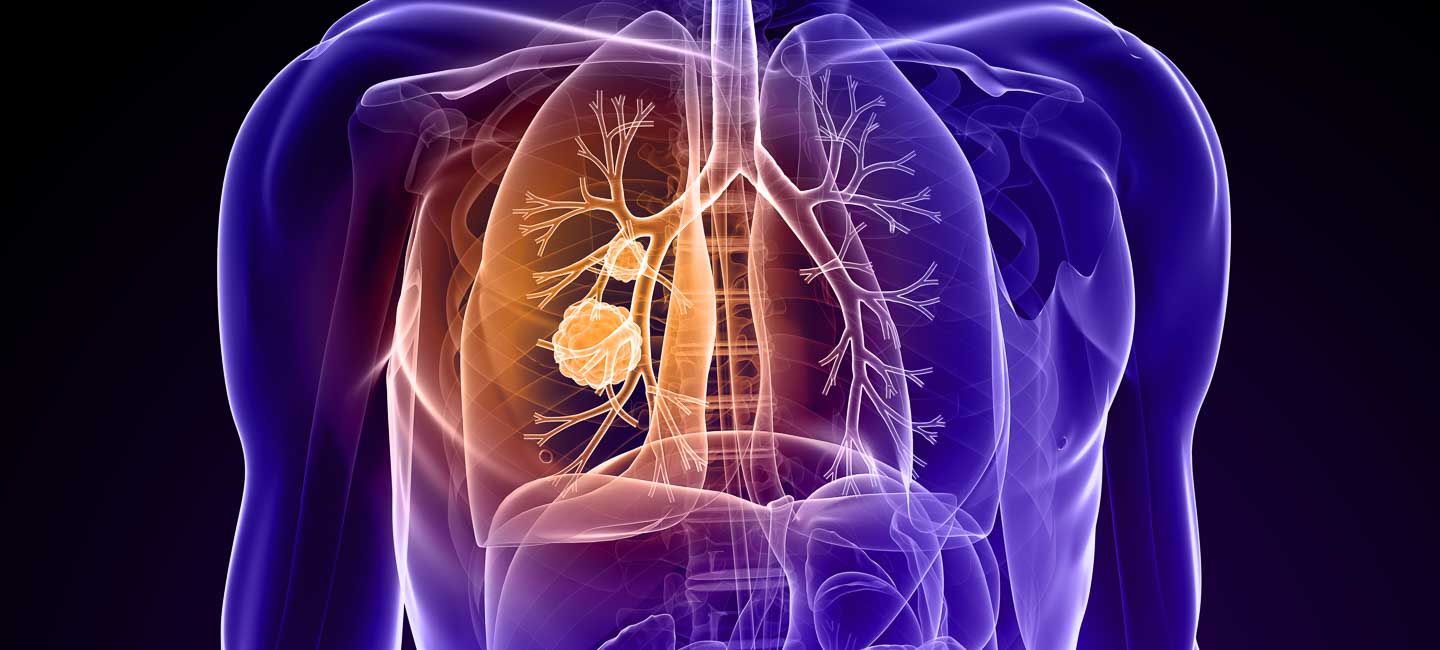A Treatment for a Cancer Once Thought to be 'Untreatable' May Already Exist
Patients suffering from an untreatable form of lung cancer may benefit from an existing cancer remedy that blocks cell growth. That’s according to a paper published in Science Translational Medicine.
Adenocarcinoma is the most common subtype of lung cancer, the leading cause of cancer death among men and women. One third of adenocarcinoma cancers have a mutant gene called KRAS, which requires any of four EGFR/ERBB growth factor receptors to be active for it to cause cancerous cells to rapidly reproduce.
Currently, there aren’t any KRAS-inhibiting drugs available for treatment of these cancers and first-generation EGFR drugs have not been beneficial for a majority of patients with this form of cancer. However, researchers found that, unlike first-generation EGFR inhibitors, one particular second-generation EGFR inhibitor – a multi-ERBB inhibitor – blocked the proliferation of KRAS-mutant lung cancer cells in lab studies and actually prevented the formation of KRAS-driven lung cancers in mice.
Moffitt researcher Dr. Matthew Smith, says, "These results suggest that drugs such as afatinib, either alone or in combination regimens, may be active in patients with KRAS mutations that currently have limited therapeutic options. By hitting multiple, closely-related targets, afatinib blocks a pro-growth signal upstream of KRAS. It will be exciting to see if these findings can be incorporated into clinical trials and ultimately improvements in patient outcomes."
Smith explains that these findings are not only important to lung cancer research, but also to colon and pancreatic cancer research because these studies deal with mutant KRAS, which is a very common mutation in lung and other solid tumors that acts downstream of cell surface receptors such as EGFR, HER2 and ERBB3.
According to Smith, conventional wisdom dictates that when KRAS is mutated and locked in the “always on” state, targeting upstream receptors such as EGFR is ineffective. Clinical trials have supported this and targeting EGFR is counter-indicated when KRAS is mutated.
Together, these papers suggest that ERBB family members upstream of KRAS do actually provide a signal important for growth of the tumor and existing drugs that work against multiple ERBB family members may have some activity in KRAS mutant lung cancer.
Previous results show that drugs that only target EGFR didn’t work, but these drugs that target all of the ERBB family members seem to be much more effective. Thus, the data presented challenges current thinking and provides new potential strategies for treating patients whose tumors have mutations in KRAS.
The scientists hope that lung cancer patients with the KRAS-driven form of lung cancer may benefit from including the inhibitor in their treatment plan.



